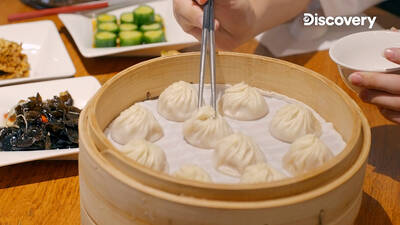對話 Dialogue
小實:天啊!晚一點會下大雨,我要趕快回家了!
Xiǎoshí: Tiān a! Wǎn yìdiǎn huì xià dàyǔ, wǒ yào gǎnkuài huí jiā le!

馬克:下大雨?你怎麼知道?
Mǎkè: Xià dàyǔ? Nǐ zěnme zhīdào?
小實:我的手機收到緊急警報提醒,你沒收到嗎?
Xiǎoshí: Wǒ de shǒujī shōudào jǐnjí jǐngbào tíxǐng, nǐ méi shōudào ma?
馬克:沒有啊,是不是我的手機有問題?
Mǎkè: Méiyǒu a, shì búshì wǒ de shǒujī yǒu wèntí?
小實:可能是你關掉了通知設定,打開就好了。
Xiǎoshí: Kěnéng shì nǐ guāndiào le tōngzhī shèdìng, dǎkāi jiù hǎo le.
馬克:可是上個月我收到了地震的警報通知。
Mǎkè: Kěshì shàng ge yuè wǒ shōu dàole dìzhèn de jǐngbào tōngzhī.
小實:地震和海嘯是國家級警報,更重要,它會自動通知每個人。
Xiǎoshí: Dìzhèn hàn hǎixiào shì guójiā jí jǐngbào, gèng zhòngyào, tā huì zìdòng tōngzhī měige rén.
馬克:原來是這樣,在美國我們也有「安珀警報」。
Mǎkè: Yuánlái shì zhèyàng, zài Měiguó wǒmen yěyǒu “ānpò jǐngbào.”
小實:這我知道,是請大家幫忙注意失蹤兒童的訊息。
Xiǎoshí: Zhè wǒ zhīdào, shì qǐng dàjiā bāngmáng zhùyì shīzōng értóng de xùnxí.
馬克:是啊,這些警報提醒都是為了讓大家更安全。
Mǎkè: Shì a, zhèxiē jǐngbào tíxǐng dōu shì wèile ràng dàjiā gèng ānquán.
翻譯 Translation
Xiaomi: Oh my God! It will rain heavily later, I have to get home quickly.
Mark: Is it raining heavily? How do you know?
Xiaoshi: I received an emergency alert reminder on my phone. Didn’t you receive it?
Mark: No, is there something wrong with my phone?
Xiaoshi: Maybe you turned off notification settings. It will be fine if you turn them on.
Mark: But last month, I received an earthquake warning notification.
Xiaomi: Earthquakes and tsunamis are national alerts that automatically notify everyone.
Mark: That’s right, we also have an AMBER Alert in the United States.
Xiaoshi: I know. It asks everyone to help pay attention to the information about missing children.
Mark: Yes, these alarm reminders are designed to make everyone safer.
單字片語 Vocabulary
1. 緊急 (jǐnjí) urgent
2. 警報 (jǐngbào) alarm
3. 提醒 (tíxǐng) to remind
4. 通知 (tōngzhī) notify
5. 設定 (shèdìng) settings
6. 地震 (dìzhèn) earthquake
7. 海嘯 (hǎixiào) tsunami
8. 自動 (zìdòng) automatic
9. 失蹤 (shīzōng) missing
10. 安全 (ānquán) safety
教材音檔 Audio Files
教材影片 Video Files:
https://www.instagram.com/celc.nou_tw/guide/_/17999106352646292/
實踐大學華語中心提供
By Shih Chien University Chinese Language Center: https://chineseusc.com/

US President Donald Trump has renewed his ambition to take control of Greenland for national security reasons and questioned whether Denmark has any legal right to the Arctic island. The debate has revived scrutiny of how Greenland became part of Denmark, its current self-rule and path to independence, and Washington’s military footprint. HOW DID DENMARK GET GREENLAND? Greenland was inhabited by Inuit peoples from Asia and North America intermittently from around 2,500 BC. Around 985 AD, Vikings led by Erik the Red settled in southern Greenland, farming and building churches. Around the same time, ancestors of today’s Inuit arrived, living as hunters

Owls have long fascinated people with their distinctive appearance and mysterious habits. These nocturnal birds possess large, round eyes and a flat facial disc. Their feathers come in shades of brown, gray, or white, helping them blend easily into the darkness. The most remarkable trait of owls is that they can turn their heads without damaging blood vessels. Contrary to popular belief, they can only rotate their heads up to 270 degrees, not 360 degrees. Owls have 14 cervical vertebrae, which is twice as many as humans. This special physical structure compensates for their inability to move their eyes within their

AI-generated summaries are shaking up the media world. Tools like Google’s AI Overviews now provide users with direct answers above the search results, resulting in fewer people clicking on news links. For publishers who rely on that traffic to generate advertising revenue, this shift is hitting hard. The fallout is measurable. Many sites have seen a sharp drop in traffic since AI summary features rolled out. An analysis revealed that a news outlet that had once ranked first on Google lost up to 79% of its traffic when its link appeared beneath an AI-generated summary. Statistics also show that

A: Bloomberg just released its annual travel guide, titled “25 Best Places to Travel in 2026.” What were the best Asian destinations? B: There were actually six Asian hotspots: Taiwan’s Taipei, Malaysia’s Penang, Kazakhstan’s Almaty, Indonesia’s Rote Island, India’s Tiger Reserves, and Oman. A: With its mix of traditional food and modern cuisine, Taipei has become a rising food capital in Asia. B: As Bloomberg reported, “Taiwan is a place that bubbles up in culinary conversation because of its famed beverage, bubble tea, and its early adoption of modern night markets.” A: And Din Tai Fung has now